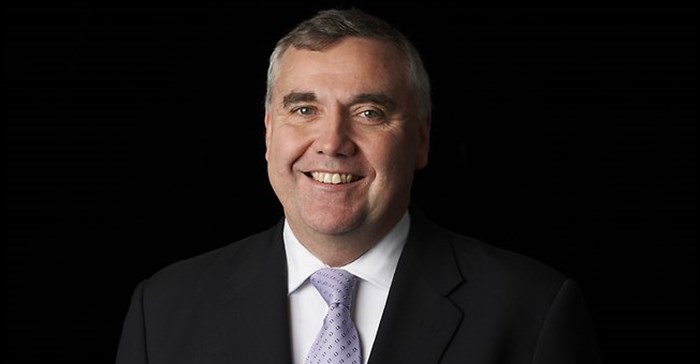
Top stories






More news


Marketing & Media
Ads are coming to AI. Does that really have to be such a bad thing?














Globalisation is having a significant impact on the local retail sector, most recently with regard to the arrival of international fast fashion retailers in South Africa. H&M opened its second South African store in Sandton City a week ago, following Topshop in 2012 and Zara in 2011, which have both seen national expansion over the last few years. "Some of the best retailers in the world are becoming multidimensional across different countries," said Brookes.
It's important that you understand what and when your customers buy, and the price they should be able to pay for your product. Some of the more successful retailers in the world, such as Walmart, Macy's and so on, all know the importance of this value concept, he said. You don't necessarily need to be the cheapest in the market, but you should price your product accordingly. Your customers are smarter than you give them credit for. "They're informed and they'll leave you very quickly because there are a number of alternatives in the marketplace."
This has to do with the customer wanting something that no one else has got. It points to self-assurance. Brookes picked up a trashy magazine a few days ago, and came across a survey that asked women what they think of their bums. Twenty percent said 'too big', 20% said 'too small' and 60% said that they're married to them ... they have to put up with them for the rest of their lives. "There's no doubt, people still want that reassurance - that 'yeah, it looks good'."
Traditional markets have changed significantly; some of the drivers being self-service retailing, the introduction of self-service scanning and more importantly, the World Wide Web. "We're seeing Facebook take over from a commercial point of view ... We're seeing Uber becoming very successful in South Africa."
The use of data involves three steps: firstly, getting the data, secondly, being able to manipulate and take that data effectively, and, thirdly, making decisions based on the information received. "Most retailers are probably in the second basket - they've got the data, they're able to extract it, they're able to understand it, but now they have to figure out what to do with it."
The quality of the people on the ground is fundamental in the business of retail. Look at the success of Apple - the way it comes down to the quality of its staff. With regard to customer service, Woolworths is one of the best in the South African marketplace.
This involves coming up with something that I've got that no one else has got, explained Brookes. Toys 'R' Us is a great example. It stocks toys that are unique to them, such as the Animal Planet range for which it has exclusive rights to sell in SA, rather than the same toys that every other toy retailer has.
The value of visual merchandise tends to be taken too lightly. "People underestimate the role of the 'silent salesman' in being able to deliver a very good message to the customer."
Environmental consciousness is becoming increasingly important in retail. Retailers are recognising their responsibility in the local community, and their staff and customers are beginning to hold them accountable.
You very much have to be agnostic of channels. Regardless of medium, you have to be agnostic about the way you market to the customer. Today's customers are very different to how they were, due to the diversity of media forms. The way they consume media is very different, so the way you market to them also needs be different, whether it be click or collect or direct to a wholesaler, you have to rethink the channels.
"A lot of the disposable income you're competing for is spent on entertainment. But if you can go into a Hamleys toy shop, or a Macy's or Selfridges' show, you're presented with a marvellous opportunity to have a big day out." Ask: 'How am I effectively going to deliver fun and theatre into my store?'
You can't get away with just selling something to someone anymore. It's now mandatory that you provide a degree of education, as added value or a bonus, such as how to apply your make-up or cook spaghetti.
